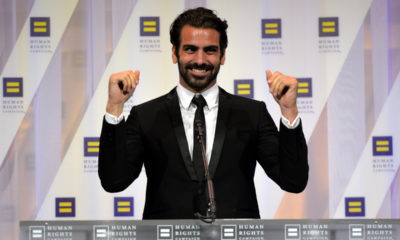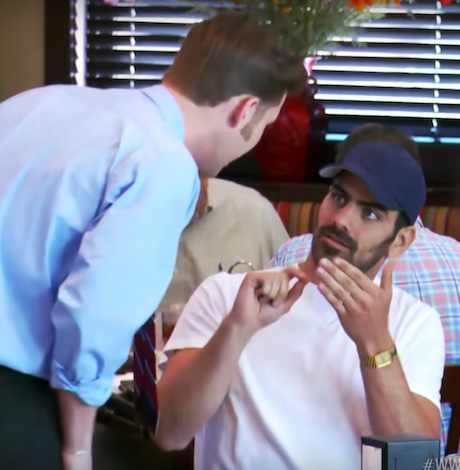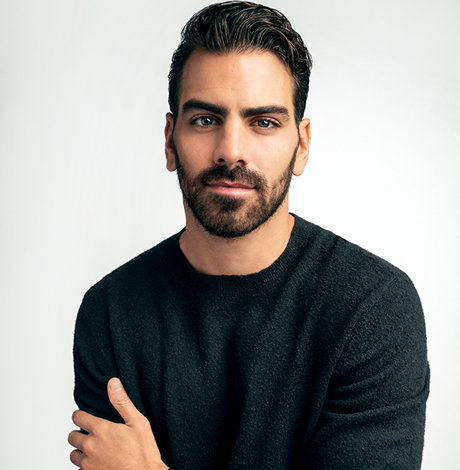Books
Two lively, entertaining new books from Deaf creators
DiMarco’s memoir and Novic’s ‘True Biz’ give visibility to oft-ignored community
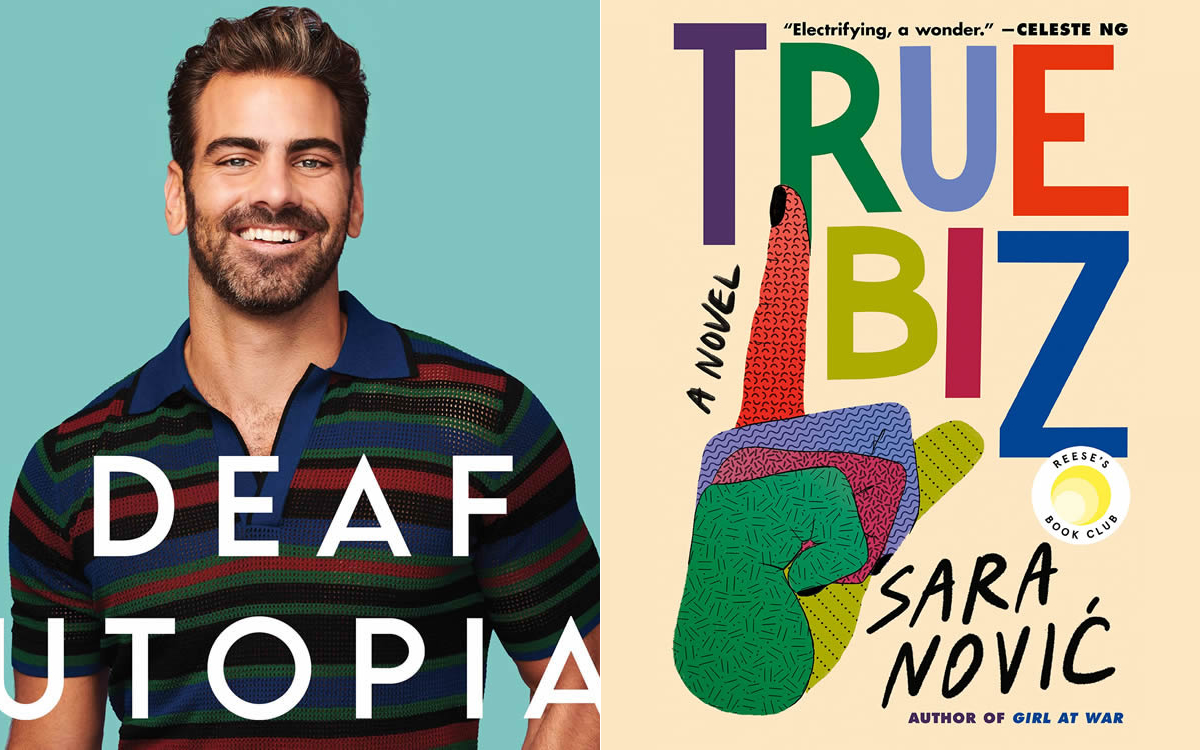
‘Deaf Utopia: A Memoir–and a Love Letter to a Way of Life’
By Nyle DiMarco
c.2022, William Morrow
$22.99/336 pages
‘True Biz’
By Sara Novic
c.2022, Random House
$27/388 pages
In the 1970s, while riding the T in Boston, a man tried to get my attention. He seemed to be talking animatedly with his hands. Knowing nothing about sign language, I thought he might be drunk. I ignored him, unfolded my white cane and got off at my stop. I’m legally blind, but have some vision. But, I don’t always recognize people whom I’ve met.
Later that day, I learned that the fellow on the T’s name was Fred and that he was Deaf. He’d seen me at a party and was signing hi to me. Fred, I’m so sorry for my rudeness!
Then, aside from the sad-sack Deaf character in the novel and movie of the same title “The Heart Is a Lonely Hunter,” Deaf people, like queer people, largely, weren’t present in books, movies, TV – anywhere in pop culture. Except as victims, villains or metaphors for loneliness or deviance.
Thankfully, after decades. this is changing. As Troy Kotsur, said of “the Deaf community, the CODA [children of Deaf adults] community and the disabled community,” when he became the first male Deaf actor to win an Oscar, “This is our moment.”
Today, Deaf and disabled people, queer and non-queer, from models to artists to filmmakers to authors are pop culture creators and icons. Two of the most lively, entertaining, moving books out now are by Deaf creators.
“Deaf Utopia” is a fascinating memoir by Nyle DiMarco with Robert Siebert. DiMarco, 32, is proudly Deaf and queer. His parents and grandparents are Deaf. He knows how to keep your attention. His stories range from his first kiss with a man to auditions with reality show execs (who want him, a Deaf guy whose native language is American Sign Language to “use his voice”) to harrowing accounts of being abused by his father.DiMarco is an activist, producer, actor, and model. In 2014, he became the second male winner and first Deaf contestant on cycle 22 of “America’s Next Top Model.”
In 2015, DiMarco, with his professional dance partner Peta Murgatroyd won the Mirrorball Trophy on season 22 of ABC’s “Dancing with the Stars.” His acting credits include roles on “Difficult People,” and “Switched at Birth.” DiMarco, a Gallaudet University graduate and Washington, D.C. resident, was executive producer of the Netflix docuseries “Deaf U.”
Growing up, he and his twin brother Nico had “gotten a taste of the cruelty of hearing people toward the Deaf when childhood bullies mocked our signing,” DiMarco writes.
As with queer people who are mocked as children, DiMarco as he got older came to see that bullying could “take more harmful and sinister forms: blatant oppression and discrimination.”
He learned from his mother that in 1995, five years after the Americans with Disabilities Act was passed, his grandfather was denied an interpreter when he was in the hospital. When he went into surgery, his family didn’t know if his “life was in danger,” DiMarco writes.
The Deaf community isn’t immune to homophobia. As a youth, DiMarco was told the story of an acclaimed, handsome Deaf track sprinter. After marrying a woman, having two children and living the life of the “picture-perfect” family man, he killed himself.
Years later, DiMarco discovered that the legendary athlete was gay, when he met the sprinter’s Deaf European out male lover. The athlete told his lover that he couldn’t come out.
“I wondered how long it would be before I saw him again,” the athlete’s lover told DiMarco, “I never did. Soon after that, he took his own life.”
Despite these sad stories, “Deaf Utopia” is far from a downer. It is filled with moments of pride and exuberance from DiMarco’s mom being there when he and Murgatroyd were awarded the Mirrorball Trophy to when he was asked to be an executive producer of “Deaf U.”
Coming out, DiMarco had to deal with homophobia and being excluded from the queer community because he’s Deaf. He met a lot of “cool” gay people at LGBTQ events and he spoke in American Sign Language at the 2016 Human Rights Campaign annual dinner.
Yet, “my new gay acquaintances were hearing and didn’t know ASL,” DiMarco writes.
But he didn’t give up. With time and patience, DiMarco taught hearing queer people ASL, and hearing LGBTQ people began to include him in their conversations.
“Deaf Utopia” has entertaining dish about what it’s like behind the scenes of reality shows. But it’s not a celeb tell-all.
The memoir is an exhilarating mix of stories of DiMarco’s life and intriguing narratives of Deaf culture. Take just one thing “Deaf Utopia” made me get for the first time: silent movies, with no spoken dialogue, were accessible to Deaf people.
If you’re hearing, you’ll likely be surprised by one sobering story of Deaf history: Alexander Graham Bell was instrumental in having sign language, the native language of Deaf people, banned from schools for the Deaf.
If you like reality shows, dancing and parties laced with queerness and Deaf culture, “Deaf Utopia” is the book for you.
“True Biz” is the dazzling new novel by Sara Novic, a brilliant Deaf writer. Like DiMarco, Novic, author of “Girl at War” and “America Is Immigrants,” is proud of being Deaf.
“To be a member of the Deaf community has been a great source of joy in my life,” she writes in an “author’s note,” “it has made me a better writer, thinker, parent, and friend.”
Schools for Deaf people have been vitally important for Deaf culture, language and community.
“True Biz” is set at the fictional River Valley School for the Deaf. Riverdale is facing closure. The novel’s main characters are February Waters, the headmistress, and two teenage students Austin and Charlie.
February is a CODA (child of Deaf adults). She and her hearing wife Melanie love each other. But like many marriages, their marriage has its strains. February must deal with everything from teen sex to Riverdale’s impending closure.
Austin is a proud Deaf teen. His family has been Deaf for generations. Nothing shakes up his life until he meets up with Charlie, a new student.
Novic is a master of creating characters that burn themselves into your heart. Charlie, who is Deaf, will tug at your heart the most. Her divorced parents are hearing. Her folks won’t let Charlie communicate in American Sign Language. Charlie attends mainstream schools where she meets no Deaf people. Her mom insists that she have a cochlear implant.
When she fails academically, Charlie is sent to Riverdale. Adjusting is hard for her because the Riverdale students communicate with ASL. She has to quickly learn to sign. February asks Austin to help her fit in.
You’ll miss and root for these characters after reading this page-turning novel. You’ll want February and her wife to stay together and good things to happen to Austin and Charlie.
“True Biz” is an American Sign Language idiom. In English, it means “seriously” or “for sure.”
Seriously, read “True Biz.”
The Blade may receive commissions from qualifying purchases made via this post.
Books
Feminist fiction fans will love ‘Bog Queen’
A wonderful tale of druids, warriors, scheming kings, and a scientist
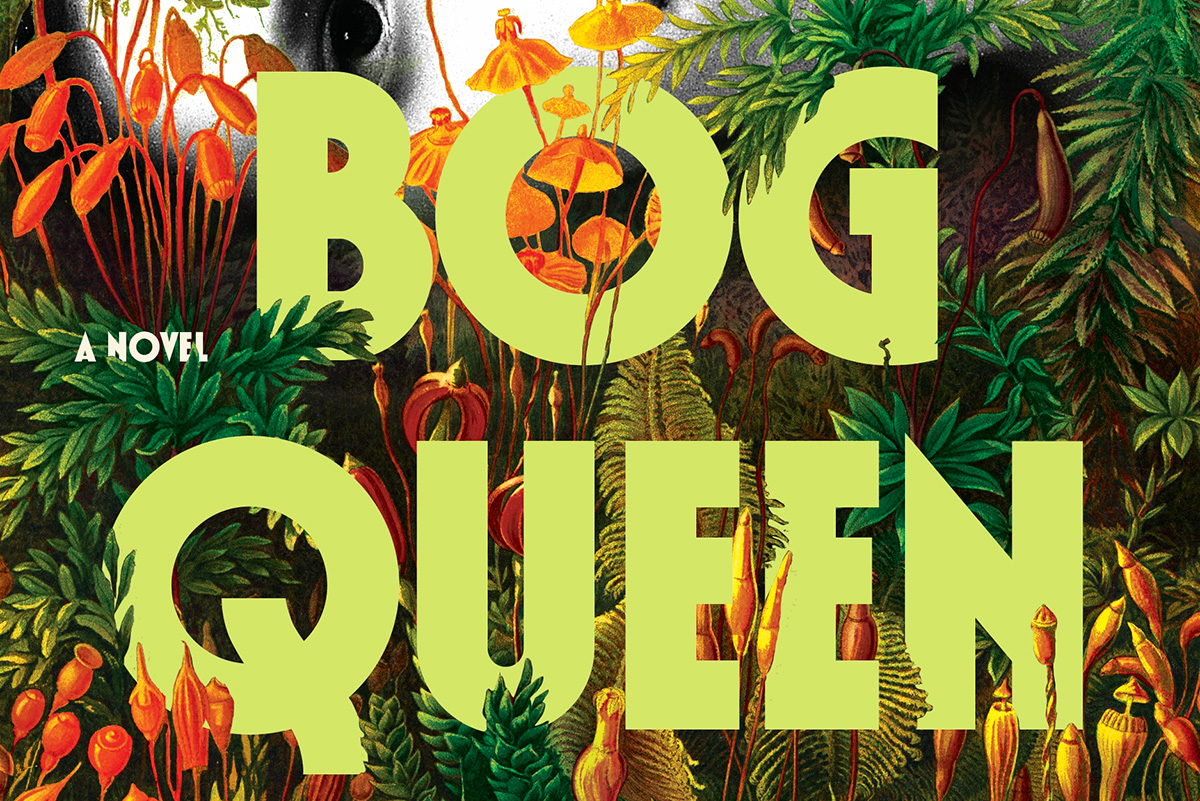
‘Bog Queen’
By Anna North
c.2025, Bloomsbury
$28.99/288 pages
Consider: lost and found.
The first one is miserable – whatever you need or want is gone, maybe for good. The second one can be joyful, a celebration of great relief and a reminder to look in the same spot next time you need that which you first lost. Loss hurts. But as in the new novel, “Bog Queen” by Anna North, discovery isn’t always without pain.

He’d always stuck to the story.
In 1961, or so he claimed, Isabel Navarro argued with her husband, as they had many times. At one point, she stalked out. Done. Gone, but there was always doubt – and now it seemed he’d been lying for decades: when peat cutters discovered the body of a young woman near his home in northwest England, Navarro finally admitted that he’d killed Isabel and dumped her corpse into a bog.
Officials prepared to charge him.
But again, that doubt. The body, as forensic anthropologist Agnes Lundstrom discovered rather quickly, was not that of Isabel. This bog woman had nearly healed wounds and her head showed old skull fractures. Her skin glowed yellow from decaying moss that her body had steeped in. No, the corpse in the bog was not from a half-century ago.
She was roughly 2,000 years old.
But who was the woman from the bog? Knowing more about her would’ve been a nice distraction for Agnes; she’d left America to move to England, left her father and a man she might have loved once, with the hope that her life could be different. She disliked solitude but she felt awkward around people, including the environmental activists, politicians, and others surrounding the discovery of the Iron Age corpse.
Was the woman beloved? Agnes could tell that she’d obviously been well cared-for, and relatively healthy despite the injuries she’d sustained. If there were any artifacts left in the bog, Agnes would have the answers she wanted. If only Isabel’s family, the activists, and authorities could come together and grant her more time.
Fortunately, that’s what you get inside “Bog Queen”: time, spanning from the Iron Age and the story of a young, inexperienced druid who’s hoping to forge ties with a southern kingdom; to 2018, the year in which the modern portion of this book is set.
Yes, you get both.
Yes, you’ll devour them.
Taking parts of a true story, author Anna North spins a wonderful tale of druids, vengeful warriors, scheming kings, and a scientist who’s as much of a genius as she is a nerd. The tale of the two women swings back and forth between chapters and eras, mixed with female strength and twenty-first century concerns. Even better, these perfectly mixed parts are occasionally joined by a third entity that adds a delicious note of darkness, as if whatever happens can be erased in a moment.
Nah, don’t even think about resisting.
If you’re a fan of feminist fiction, science, or novels featuring kings, druids, and Celtic history, don’t wait. “Bog Queen” is your book. Look. You’ll be glad you found it.
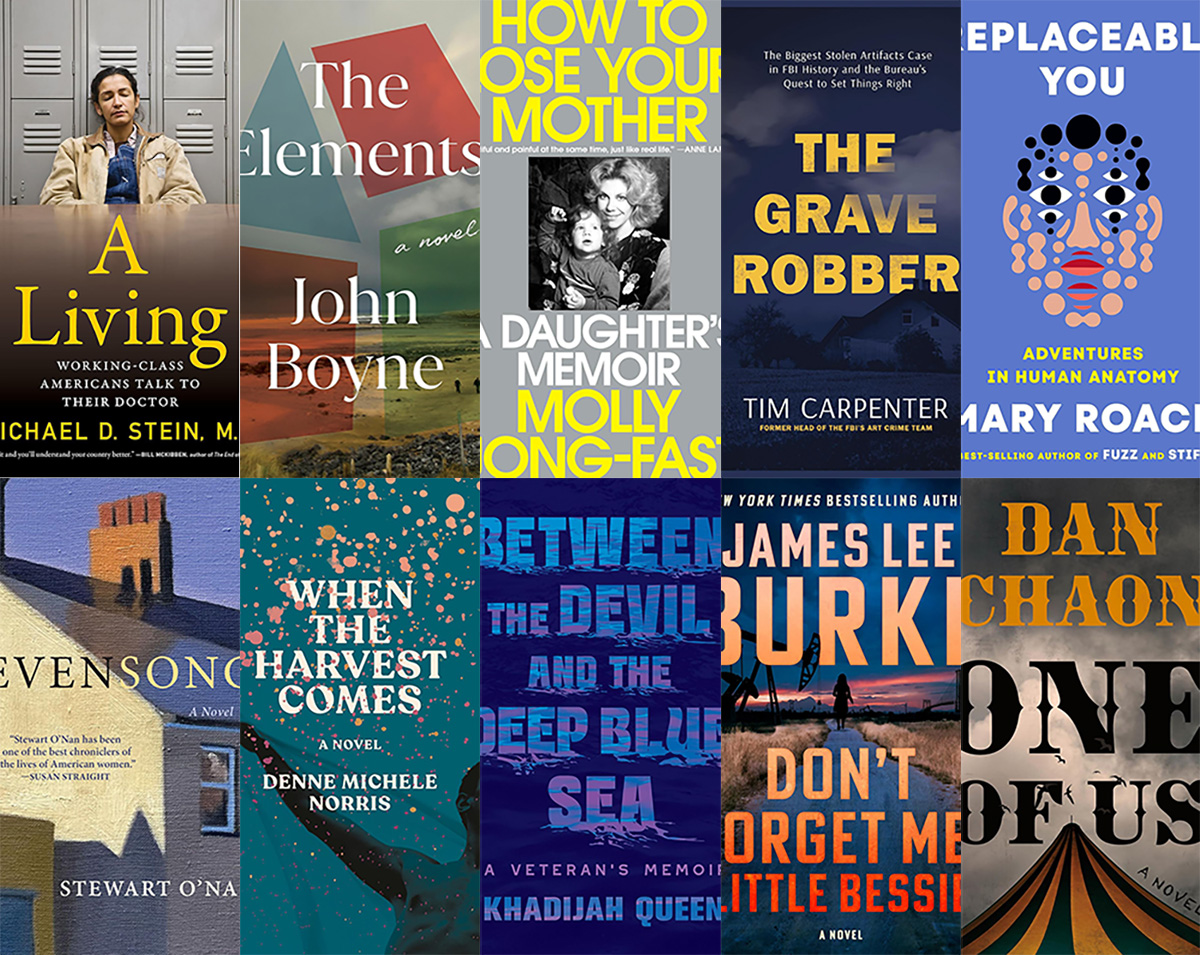
This past year, you’ve often had to make do.
Saving money here, resources there, being inventive and innovative. It’s a talent you’ve honed, but isn’t it time to have the best? Yep, so grab these Ten Best of 2025 books for your new year pleasures.
Nonfiction
Health care is on everyone’s mind now, and “A Living: Working-Class Americans Talk to Their Doctor” by Michael D. Stein, M.D. (Melville House, $26.99) lets you peek into health care from the point of view of a doctor who treats “front-line workers” and those who experience poverty and homelessness. It’s shocking, an eye-opening book, a skinny, quick-to-read one that needs to be read now.
If you’ve been doing eldercare or caring for any loved one, then “How to Lose Your Mother: A Daughter’s Memoir” by Molly Jong-Fast (Viking, $28) needs to be in your plans for the coming year. It’s a memoir, but also a biography of Jong-Fast’s mother, Erica Jong, and the story of love, illness, and living through the chaos of serious disease with humor and grace. You’ll like this book especially if you were a fan of the author’s late mother.
Another memoir you can’t miss this year is “Between the Devil and the Deep Blue Sea: A Veteran’s Memoir” by Khadijah Queen (Legacy Lit, $30.00). It’s the story of one woman’s determination to get out of poverty and get an education, and to keep her head above water while she goes below water by joining the U.S. Navy. This is a story that will keep you glued to your seat, all the way through.
Self-improvement is something you might think about tackling in the new year, and “Replaceable You: Adventures in Human Anatomy” by Mary Roach (W.W. Norton & Company, $28.99) is a lighthearted – yet real and informative – look at the things inside and outside your body that can be replaced or changed. New nose job? Transplant, new dental work? Learn how you can become the Bionic Person in real life, and laugh while you’re doing it.
The science lover inside you will want to read “The Grave Robber: The Biggest Stolen Artifacts Case in FBI History and the Bureau’s Quest to Set Things Right” by Tim Carpenter (Harper Horizon, $29.99). A history lover will also want it, as will anyone with a craving for true crime, memoir, FBI procedural books, and travel books. It’s the story of a man who spent his life stealing objects from graves around the world, and an FBI agent’s obsession with securing the objects and returning them. It’s a fascinating read, with just a little bit of gruesome thrown in for fun.
Fiction
Speaking of a little bit of scariness, “Don’t Forget Me, Little Bessie” by James Lee Burke (Atlantic Monthly Press, $28) is the story of a girl named Bessie and her involvement with a cloven-hooved being who dogs her all her life. Set in still-wild south Texas, it’s a little bit western, part paranormal, and completely full of enjoyment.
“Evensong” by Stewart O’Nan (Atlantic Monthly Press, $28) is a layered novel of women’s friendships as they age together and support one another. The characters are warm and funny, there are a few times when your heart will sit in your throat, and you won’t be sorry you read it. It’s just plain irresistible.
If you need a dark tale for what’s left of a dark winter season, then “One of Us” by Dan Chaon (Henry Holt, $28), it it. It’s the story of twins who become orphaned when their Mama dies, ending up with a man who owns a traveling freak show, and who promises to care for them. But they can’t ever forget that a nefarious con man is looking for them; those kids can talk to one another without saying a word, and he’s going to make lots of money off them. This is a sharp, clever novel that fans of the “circus” genre shouldn’t miss.
“When the Harvest Comes” by Denne Michele Norris (Random House, $28) is a wonderful romance, a boy-meets-boy with a little spice and a lot of strife. Davis loves Everett but as their wedding day draws near, doubts begin to creep in. There’s homophobia on both sides of their families, and no small amount of racism. Beware that there’s some light explicitness in this book, but if you love a good love story, you’ll love this.
Another layered tale you’ll enjoy is “The Elements” by John Boyne (Henry Holt, $29.99), a twisty bunch of short stories that connect in a series of arcs that begin on an island near Dublin. It’s about love, death, revenge, and horror, a little like The Twilight Zone, but without the paranormal. You won’t want to put down, so be warned.
If you need more ideas, head to your local library or bookstore and ask the staff there for their favorite reads of 2025. They’ll fill your book bag and your new year with goodness.
Season’s readings!
The Blade may receive commissions from qualifying purchases made via this post.
Books
This gay author sees dead people
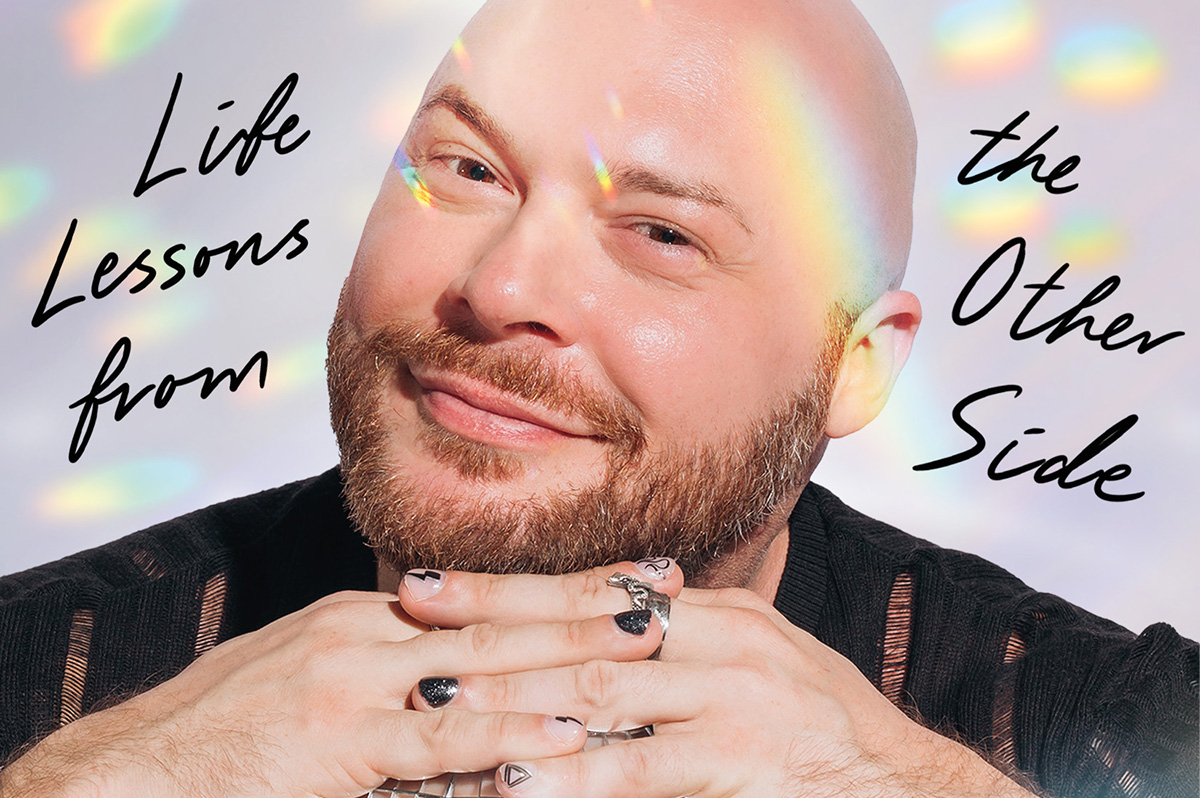
‘Are You There Spirit? It’s Me, Travis’
By Travis Holp
c.2025, Spiegel and Grau
$28/240 pages
Your dad sent you a penny the other day, minted in his birth year.
They say pennies from heaven are a sign of some sort, and that makes sense: You’ve been thinking about him a lot lately. Some might scoff, but the idea that a lost loved one is trying to tell you he’s OK is comforting. So read the new book, “Are You There, Spirit? It’s Me, Travis” by Travis Holp, and keep your eyes open.

Ever since he was a young boy growing up just outside Dayton, Ohio, Travis Holp wanted to be a writer. He also wanted to say that he was gay but his conservative parents believed his gayness was some sort of phase. That, and bullying made him hide who he was.
He also had to hide his nascent ability to communicate with people who had died, through an entity he calls “Spirit.” Eventually, though it left him with psychological scars and a drinking problem he’s since overcome, Holp was finally able to talk about his gayness and reveal his otherworldly ability.
Getting some people to believe that he speaks to the dead is still a tall order. Spirit helps naysayers, as well as Holp himself.
Spirit, he says, isn’t a person or an essence; Spirit is love. Spirit is a conduit of healing and energy, speaking through Holp in symbolic messages, feelings, and through synchronistic events. For example, Holp says coincidences are not coincidental; they’re ways for loved ones to convey messages of healing and energy.
To tap into your own healing Spirit, Holp says to trust yourself when you think you’ve received a healing message. Ignore your ego, but listen to your inner voice. Remember that Spirit won’t work on any fixed timeline, and its only purpose is to exist.
And keep in mind that “anything is possible because you are an unlimited being.”
You’re going to want very much to like “Are You There, Spirit? It’s Me, Travis.” The cover photo of author Travis Holp will make you smile. Alas, what you’ll find in here is hard to read, not due to content but for lack of focus.
What’s inside this book is scattered and repetitious. Love, energy, healing, faith, and fear are words that are used often – so often, in fact, that many pages feel like they’ve been recycled, or like you’ve entered a time warp that moves you backward, page-wise. Yes, there are uplifting accounts of readings that Holp has done with clients here, and they’re exciting but there are too few of them. When you find them, you’ll love them. They may make you cry. They’re exactly what you need, if you grieve. Just not enough.
This isn’t a terrible book, but its audience might be narrow. It absolutely needs more stories, less sentiment; more tales, less transcendence and if that’s your aim, go elsewhere. But if your soul cries for comfort after loss, “Are You There, Spirit? It’s Me, Travis” might still make sense.
The Blade may receive commissions from qualifying purchases made via this post.
-

 National5 days ago
National5 days agoWhat to watch for in 2026: midterms, Supreme Court, and more
-

 District of Columbia5 days ago
District of Columbia5 days agoImperial Court of Washington drag group has ‘dissolved’
-

 Colombia4 days ago
Colombia4 days agoGay Venezuelan man who fled to Colombia uncertain about homeland’s future
-

 District of Columbia4 days ago
District of Columbia4 days agoKennedy Center renaming triggers backlash

